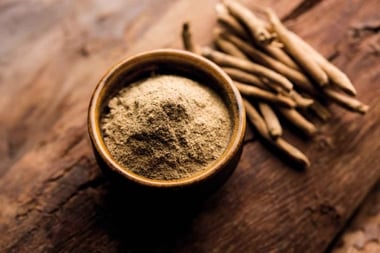Fact or Fiction?
Gastrointestinal disorders have become increasingly prevalent; each year there are 22 million reported cases in the United States of acute digestive conditions, including indigestion, abdominal pain, and bowel dysfunction.

Gastrointestinal disorders have become increasingly prevalent; each year there are 22 million reported cases in the United States of acute digestive conditions, including indigestion, abdominal pain, and bowel dysfunction.
In addition, the relationship between digestive symptoms and systemic diseases such as rheumatoid arthritis, multiple sclerosis, and chronic fatigue is receiving greater attention in current medical research.
Battle of the Bacteria
A healthy person lives in harmony with both their external and internal environments. The intestinal environment houses over 400 species of bacteria and other organisms, predominantly friendly and health promoting. However, sometimes the micro-organisms' state of balance is interrupted by the overgrowth of unfriendly organisms. When the unfriendly organisms override the friendly ones, this state is called dysbiosis.
Dysbiosis can be caused by parasites, yeast forms such as Candida albicans, or bacteria. While unfriendly organisms may not be considered pathogenic by conventional medicine, a predominance of unfriendly organisms in the digestive tract can cause severe illness in chronically ill, weakened, or malnourished patients. In healthy persons, the immune system can be weakened by nutritional deficiencies, chemical toxins, stress, food allergies, drugs, or poor diet, allowing the unfriendly organisms to proliferate beyond normal limits.
The intestinal wall, in a healthy state, is a protective membrane that will keep the toxic byproducts of digestion out of the bloodstream. When there is an overgrowth of yeast or fungal forms, these micro-organisms damage protective mucous membranes, causing increased intestinal permeability, sometimes called "leaky gut." The toxic byproducts can now pass through the wall into the bloodstream and affect other parts of the body. The immune system reacts by forming antibodies against these larger foreign invaders; in some people this can lead to autoimmune diseases.
Common Causes of Dysbiosis
Drugs: Antibiotics alter the intestinal flora and cause increased risk of overgrowth by opportunistic bacteria or fungi and antibiotic-resistant bacterial strains. Non-steroidal anti-inflammatory drugs (NSAIDS) cause gastrointestinal mucosal inflammation and lesions leading to increased permeability of the gut. Oral contraceptives, hormone replacement therapy (HRT), steroids (e.g., asthma medications or prednisone) can also cause overgrowth of unfriendly organisms by interrupting the balance in microflora.
Physical contact: Yeast and fungal forms are easily spread through hospital or institutional procedures such as intravenous feedings, dialysis, or catheterization, as well as through moldy foods.
Living conditions: Damp, moldy living environments contain many fungal spores that can be inhaled, causing sinus problems and other yeast- and fungal-related conditions.
Diet and digestion: Poor digestion caused by eating too quickly or through a lack of enzymes, contributes to overgrowth by providing additional food sources from undigested food particles. Diets high in alcohol, refined carbohydrates, and sugars provide nourishment for the yeast and fungal organisms.
The Candida Connection
The clinical picture for microbial imbalances may be different for every person, and many people are unable to find answers for these symptoms within the conventional model of medicine. Allopathic medicine treats yeast overgrowth symptomatically and only when there are overt manifestations such as vaginal yeast, thrush, or fungal problems.
Since the publication of The Missing Diagnosis by C.O. Truss (Missing Diagnosis Publishing) in 1983 followed by William G. Crook's The Yeast Connection: A Medical Breakthrough (Pelican, 1987), a controversy has raged in scientific circles regarding the significance of gastrointestinal candidiasis (GIC) and its ability to cause systemic symptoms. Over the decades, research has indicated that dysbiosis related to GIC may be more prevalent than has been generally acknowledged.
There are a myriad of symptoms possibly related to dysbiosis/GIC. Most women recognize the symptoms of candidiasis simply as a yeast infection. Studies have shown that vulvovaginal candidiasis (vaginal yeast infection) does not occur naturally without the concomitant presence of Candida albicans within the large bowel; the yeast infections are generally not cured without also eliminating the candida.
Health Consequences
A leaky gut can lead to the production of antibodies by the immune system. The antibodies may get into various tissues and trigger inflammatory reactions when a particular food is consumed or the microbe is encountered. If this inflammation occurs in a joint, rheumatoid arthritis develops; if in the brain, myalgic encephalomyelitis (chronic fatigue syndrome) is the result; in the blood vessels, vasculitis; in the gut, colitis or Crohn's disease; in the lungs, asthma is triggered. These examples illustrate how an organ or body tissue can be affected by immune responses due to a leaky gut.
Dysbiosis and leaky gut can also cause the malabsorption of many important minerals and micronutrients. The inflammatory process damages the carrier proteins and can cause a variety of toxic chemicals which can block the absorption of vitamins, minerals, and amino acids. For example, it's known that unfriendly micro-organisms can prevent the uptake of vitamin B12, causing a deficiency.
Get a Diagnosis
For many years, there was a lack of reliable laboratory investigation techniques to clinically diagnose dysbiosis. Today there are specialty labs that test for yeast, bacteria, and parasites. A complete history and a thorough review of clinical symptoms is a good assessment tool.
The comprehensive digestive stool analysis (CDSA) offers insight into the diagnosis and treatment of patients with digestive conditions related to dysbiosis. The candida saliva enzyme-linked immunosorbant assay (ELISA) test measures the antibodies to candida. A technique known as darkfield microscopy (live cell blood analysis) has drawn some criticism from the conventional medical community; skeptics claim that viruses, bacteria, fungi, and parasites cannot exist in the bloodstream. They argue that if these organisms were present in the bloodstream, the patient would die of septic shock. This has been contested, and a growing number of alternative health practitioners are recognizing the importance of using this kind of analysis. Their research suggests that when the yeast forms are seen in the live cell analysis, antibody tests such as ELISA have been positive for Candida albicans.
Treatment Options
There are three parts to treating dysbiosis: 1) restore the friendly organisms to the intestine, 2) starve out the bad organisms, and 3) kill off the unfriendly organisms with natural antimicrobial therapies.
1) Restore the friendly intestinal flora. A bowel colonized with healthy flora will maintain a proper pH, properly utilize vitamins, minerals, and proteins, and will bind the toxic elements in the fecal materials. The most important friendly bacteria include Lactobacillus acidophilus and Bifidobacterium bifidum. Foods fermented with these bacteria are of great importance in the diet. Fermented foods include yogourt and kefir (cultured milk products), miso and tempeh (fermented soy foods), fermented vegetable juices, or sauerkraut. Probiotic supplements are also available at health food stores and come in different combinations of bacteria and strengths. The ingestion of 1-10 billion friendly organisms daily can be tolerated by most people.
2) Starve the unfriendly organisms. Avoid consuming the foods that nourish and support the growth of candida and other yeast forms.
- Avoid all sugars (including honey and maple syrup) and refined carbohydrates such as pasta, yeasted breads, all sweet pastries, white rice, noodles, etc. Also eliminate alcohol, fruit juices, processed meats, dried fruits, and malt products. Avoid eating or drinking any foods or beverages that you may be allergic or sensitive to.
- Keep carrots, potatoes, and peas to a minimum–they are higher in carbohydrates than most other vegetables. Keep servings of whole grain products (yeast- and sugar-free) to 2 servings per day, if possible. Eat fresh fruits in moderation (up to 3 to 4 servings daily)–but avoid fruits higher in sugar such as grapes, bananas, and melons.
- You can freely eat vegetables, fish, and meats (hormone- and antibiotic-free), raw nuts and seeds (except peanuts and cashews, which contain over 27 different strains of fungus), and healthy oils such as flaxseed and olive oils.
- Digestive enzymes play an important role here, as well. Efficient digestion leaves less metabolic waste for the bad micro-organisms to feed on. Supplements such as bromelain, papain, betaine HCL, or stomach bitters can all enhance digestion.
3) Kill the unfriendly micro-organisms. Candida and other yeasts and fungal forms can be killed with antifungal phytoceutical remedies, including essential oils, fatty acids, and herbs.
Essential oils: Numerous studies show that aromatic oils from plants can act as broad-spectrum antimicrobial agents. Enteric-coated peppermint oil has been shown to inhibit the growth of 22 different bacterial strains, and studies show that it is very effective in the treatment of irritable bowel syndrome. The daily dose used in the studies was 0.2 mL three times daily. Oregano oil, cinnamon, cloves, tea-tree oil, and thyme have anti-yeast and antifungal properties as well. The standard dose orally for these oils is very low, often 1 to 2 drops, once or twice daily. Tea-tree oil should not be taken internally but is very effective topically. Most products are 5 to 10 percent tea-tree oil, but test the oil on your skin; if there is irritation, dilute further. Avoid taking any of these oils internally if you are pregnant.
Fatty acids: Recently been found effective in the treatment of topical and intestinal yeast or fungal problems. Both caprylic and undecylenic acids have been used to treat gastrointestinal candidiasis (GIC) and Candida albicans. Undecylenic acid has very low toxicity and as much as 20 grams per day have been taken orally with no or very mild gastrointestinal side effects. The suggested daily dose for caprylic acid is 1,000 to 2,000 mg, two to three times daily. You can start off with 500 mg twice daily and work your way up.
Herbal therapies: Garlic (Allium sativum) and olive leaf extract (Olea europaea) are clinically proven effective agents against bacteria, fungi, and yeast. Find a garlic supplement with 4,000 to 5,000 micrograms of allicin per pill (roughly the same amount found in one clove of garlic), and take one capsule, two to three times daily The recommended daily dose for olive leaf extract is 500 to 1,000 mg daily.
Berberine sulfate, found in goldenseal (Hydrastis canadensis), barberry bark (Berberis vulgaris), and Oregon grape root (Berberis aquifolium), is effective in the internal and topical treatment of candidiasis. Studies show that berberine sulfate inhibited the growth of Candida albicans as well as 10 other fungi. Echinacea (Echinacea purpurea) also has been shown to inhibit the growth of Candida albicans. Echinacea comes in many forms and strengths; follow the instructions on the label for daily dosages.
Grapefruit seed extract (300 to 600 mg daily) is also reported to have powerful antimicrobial activity.
Note: I recommend that pregnant women avoid taking all herbs with the exception of some herbal teas. Consult your alternative health practitioner.
The dysbiosis protocol and diet should be followed for six to eight weeks. After this time keep your refined carbohydrates and sugars to a minimum and take probiotics on a regular basis. For the first year, repeat the dysbiosis protocol for a period of one month, every three to four months. Afterwards, repeat once or twice a year to maintain gut health throughout your life.
Possible Side Effects of the Treatment Protocol
If you are susceptible to yeast or bladder infections, you may find that you experience either one of these infections during treatment due to the die-off of the yeast. If you do get a yeast infection, use vaginal suppositories or douche to treat the irritation. If you experience a bladder infection, avoid antibiotics if possible. Antibiotics counteract what you are trying to accomplish with the treatment protocol. However, if the bladder infection does not respond within 24 hours to natural protocols, antibiotics may be necessary. Drink unsweetened cranberry juice and take 3,000 to 5,000 mg of vitamin C daily. If this does not help, contact your naturopathic physician who can help with homeopathic or additional herbal remedies. Skin rashes are also a common side effect of the treatment.
Symptoms of Dysbiosis Can Include:
- fatigue
- depression
- mental confusion and memory problems
- dizziness and headaches
- anxiety and unexplained crying
- blood sugar imbalances (hypoglycemia)
- skin rashes or acne
- sensitivity to the smells of perfumes, exhaust fumes, cigarette smoke, etc.
Gastrointestinal symptoms such as belching, abdominal distension, burning in the chest, nausea, gas and bloating, diarrhea, constipation, or abdominal pain are also common.
Diseases Associated with Dysbiosis and Leaky Gut
- multiple sclerosis
- vitiligo
- thyroiditis
- vasculitis
- Crohn's disease
- irritable bowel syndrome
- ulcerative colitis
- inflammatory bowel disease
- anklylosing spondylitis
- diabetes
- lupus
- rheumatoid arthritis
- fibromyalgia
- chronic fatigue syndrome
- eczema
- blepharitis (crusty, red eyelids)
- urticaria (hives)
- bladder infections
- psoriasis
- sinusitis and allergies
Candida Questionnaire
First, answer the following general medical history questions to determine whether you may have some of the underlying preconditions for dysbiosis. Add 10 points to your total score for each question you answered "yes" to. Add this subtotal to the total score for symptoms, below.
General History:
_____Have you taken tetracycline for acne for one month or longer?
_____Have you taken antibiotics for infections more than four times per year?
_____Have you taken birth control pills for more than two years?
_____Have you taken prednisone or other cortisone-like drugs (e.g., asthma medication)?
_____Does the smell of perfume, tobacco, or other odours or chemicals make you sick?
_____Do you crave sugars or breads?
Symptoms
Enter (1) if symptom is mild or infrequent, (2) if moderate or frequent, (3) if severe or constant.
Do you:
_____Experience vaginal discharge or irritation
_____Experience bladder infections or incontinence
_____Experience premenstrual syndrome (PMS) or fluid retention
_____Have sinus infections or irritations
_____Have allergies to foods or environmental substances
_____Feel worse in damp weather or moldy environments
_____Experience feelings of anxiety and/or irritability
_____Have insomnia
_____Experience gas and bloating
_____Experience constipation or diarrhea
_____Have bad breath
_____Have a difficult time concentrating; feel "spacey"
_____Experience muscle weakness or painful joints
_____Have skin rashes or hives
_____Feel pressure behind or irritation of the eyes
_____Have headaches (migraine or other)
_____Generally "not feeling well" without explanation or diagnosis
_____Have thyroid problems
_____Have sensitivity to alcohol
_____Have muscle aches or weakness
Total Score _____
Scoring:
Less than 50 indicates mild dysbiosis
50 to 90 indicates moderate dysbiosis
90-120 indicates severe dysbiosis




